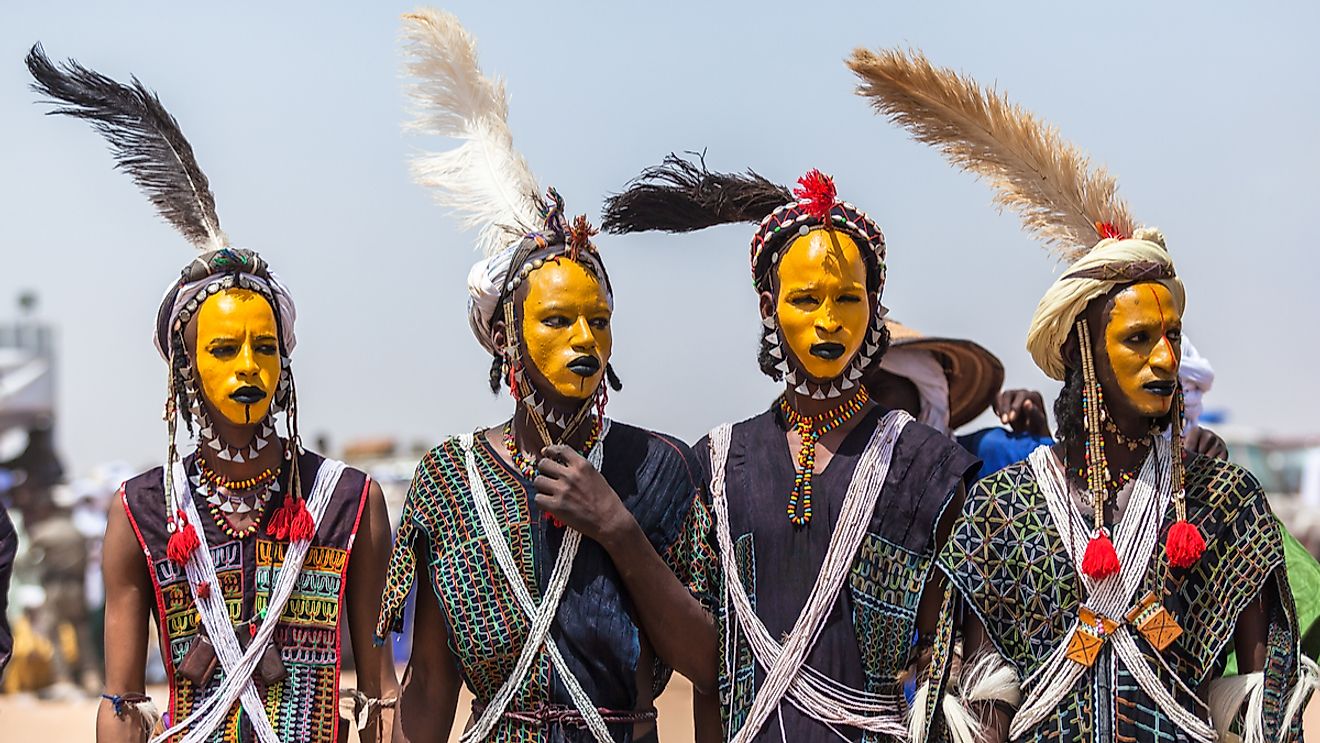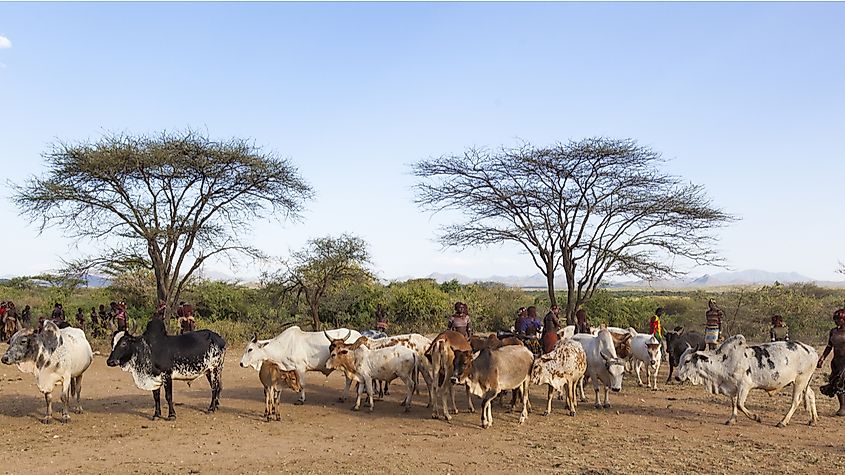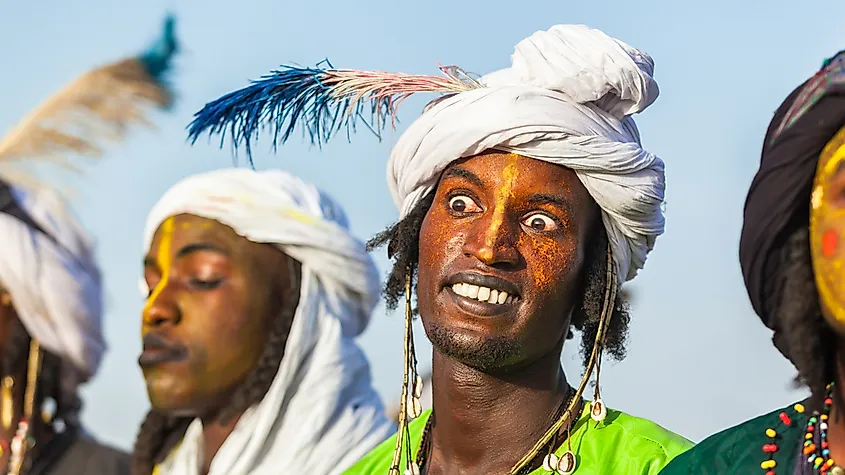10 Initiation Rights Of African Tribes

- Rites of passage in Africa can range from circumcision without anesthetic to birth charts and fattening rooms.
- Unlike Western cultures that encourage individuals to find their own path in life by themselves, African cultures focus on building community through creating families.
- Some traditional initiation rites in Africa are now illegal because they inflict harm on those involved, but tribes still practice them in secret.
What is strange to one person is everyday fare to the next. “Normal” and “abnormal” really depend on your point of view, and much of that comes from the cultures and traditions you grow up with. Many places around the world share similarities yet every culture is unique in its own right. African cultures are some of the most distinct on the planet and they have initiation rites that can span from amusing to shocking when considered by those living off the continent.
According to Merriam-Webster, an initiation rite is an act someone must do in order to join a group or organization on an official basis. Many cultural initiation rites mark the transition from one phase of life into another. Scholars say there are five major initiation rites in African cultures. These include rites of birth, adulthood, marriage, eldership, and ancestorship. Here are ten initiations that highlight traditional African ways of life.
1. Acquiring Cattle
In many cultures, cows play an important role. In India for example, many people consider cows to be sacred. In Africa they also play an important role in proving you can provide for a family. In the Bantu-speaking tribes of South Africa, Swaziland and Zimbabwe, a man must work for his father until he can grow a substantial herd of cows. Only then can he get married. Unfortunately, this has caused men to have to wait until their 40s to finally find an official wife and has left many women waiting.
2. Bull Jumping
In Omo Valley, Ethiopia, when a young man is of age to get married, he must first prove he is dexterous and deft. He does this by undressing and running naked over the backs of a line of prize bulls four times. If a person successfully completes this initiation ritual, he passes into manhood and will be allowed by his community to marry.

3. Circumcision
In Eastern Cape, South Africa, Xhosa boys who are becoming men are circumcised without an anesthetic. They are then sent away to live in the bush in a structure made by their elders, for up to about two months with only a blanket and a few other supplies. This traditional practice, as with others in this list, has come upon criticism in modern times as sometimes the circumcisions are botched, leaving the lives of the young men in danger. Traditionally, the practice of sending youth out of the community as they enter adulthood is meant to be used to educate them about their new roles in the group as adults. In African communities, this meant teaching the youth about the rules and taboos of their society, what their moral and social responsibilities were, and what their calling in life should be. Some initiation rites have come to focus on survival against all odds, which has placed lives in danger.
4. Fattening Rooms
In contrast with western ideals of beauty, in Nigeria, being obese as a woman is considered highly attractive. It is thought that only people who are well off can afford to feed their wives a lot of food. An overweight woman is considered to be a sign of both wealth and health for her and her husband. But most people are not naturally as fat as rich men in this area of the world would like. In order to compensate for the difference and add on some pounds before their wedding day, brides-to-be of the wealthy are sent off to “fattening rooms.” Here, they are fed large amounts of food, and they basically eat, sleep, and pass the time. Women can spend six months in fattening rooms, leaving transformed for their new lives of luxury.
5. Sexual Cleansing
Adolescent girls in Africa, just as boys, undergo rites of passage into adulthood. Unfortunately, some of these are abusive. In Malawi's southern region, girls can be sent from their villages to a camp to be taught how to please their future husbands in bed, by older women in the community. Upon return to their communities, they are encouraged to have sex with a man in order to complete their initiation, even at the age of 10. This is called “sexual cleansing” by those who encourage it, and in regions where it is practiced, it is a deeply entrenched tradition that has lasted generations, largely due to the fact that so much of the population lives beneath the poverty line and encouraging the girls to have intercourse and get married is a way for families to cut down on costs. New movements are encouraging young women to fight back for their freedoms, however, and providing support for them to finish school, rather than get pregnant early and be married at a young age.
6. Birth Charts
Babies born into African communities also undergo certain rituals. One is having a birth chart drawn up. A birth chart details a person’s talents as well as their personality traits, much like a western horoscope. Having this chart done can help parents choose a name for their child. The information discovered can lead to a name that is said to suit the new human. If their name matches their birth chart, it is said that the person will remain focused on their life’s work, by being reminded of it each time their name is called out.
7. Female Circumcision
Sadly, in some African cultures as well as some in the Middle East, female circumcision is performed as a rite of passage into adulthood. The practice is illegal, but groups like the Maasai in Kenya are still known to practice it. The act involves cutting off part of the clitoris, or even all of the external genitalia of an adolescent girl. Obviously, this is extremely painful, and can result in lifelong complications that can be deadly, and lead to infertility as well as complications during childbirth. But more and more women are in these communities are taking a stand, and initiatives like the ones from the United Nations are educating about the dangers of this practice.

8. Courtship Dances
Some tribes like the Wodaabe of Niger have men dress up and wear makeup to attract the attention of female judges. This is done as part of an annual festival that has men dance for the women, and show their teeth. Those with the best moves, the fanciest dress, and the whitest eyes and teeth are said to have the best chance of finding a mate, at least for that night.
9. Flogging
Strangely enough, some groups also whip their men into adulthood. The Fulani people of Nigeria are said to flog young men to prove how brave and tough they are, and how much pain they can really endure. Following the flogging ceremony, which takes in a public ring, those who did well are allowed to marry the person of their choosing.
10. Cloth Wrapping
A slightly less harmful tradition is that found in Ugbo, eastern Nigeria. It involves wearing a piece of expensive cloth through the streets. When a young man is of marrying age, he is “investigated” by the local community to see to what degree he is an eligible bachelor. Those who meet the right criteria for eligibility are allowed to purchase an expensive piece of cloth, which they wear parading through the community as a sign of passing into the age of marriage.
Like every region, Africa is full of many diverse cultures with different traditions and beliefs. And and extension of this reality is the fact that some of these initiation rites are dangerous and controversial, and others not so. With awareness and education, those with a potential for harm can one day be put to an end.











